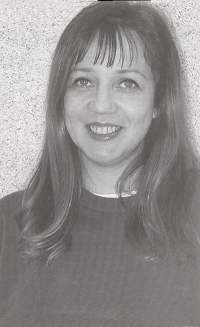For Your Consideration:
"Orbiting Izzy"

"The brave writers whose work is represented in this volume have acted in good faith, faced their demons, stayed the course, and revised relentlessly. And in taking on the subject of themselves—making themselves vulnerable to the unseen reader—they have exchanged powerlessness for the power that comes with self-awareness."--Wally Lamb
These powerful stories, testaments, hit us on all levels: we can't escape the power of their story, Let's reflect on anything and everything that comes to us as a result of reading them, INCLUDING the art of writing them.
1. Wally Lamb begins his introduction explaining what goes on in editing, quoting different authors on the art of writing, and lists several techniques the authors in this book may have used. Are you familiar with any of these
Writing Techniques? Let's keep an eye out for particularly good examples of the writer's craft in each story we read.
2. Orbiting Izzy" presents a fun story of contrast: the contrast of Responsibility, represented by the employer Isadore ("Izzy Weintraub's School of Responsibility") and Risk, represented by Nancy, who "practically had a degree in risk."
Which character influenced the other the most?
Which character, at the end, showed the most responsibility?
3. Do you see a difference in "Orbiting Izzy" and "The True Face of Earth," and if so what is it?
4. Does "Orbiting Izzy" end positively? Why or why not?
5. In the heading under the underlined Writing Techniques we can see Susan Rabiner and Aldred Fortunato talking about:
[Let's add: what are the issues each author explores?]
What is the thesis: the position the author takes on the issue.
What is the question it asks and what answer does it seem to provide?
How would you answer these in regards to "Orbiting Izzy?"
6. How does the author get the reader into the story? How effective is her technique of starting out worrying about her hair and clothes? --Andrea
7. What did she mean by "I realized that Aldo deserved every bit of his reputation as a criminal and a ladies' man. So I married him."
How does the humor and irony in that statement reflect the entire tone of the story?
Did she marry him fearing that with his fondness for the ladies she would lose him? (Andrea)
8. Do you find this story humorous? What are some of the examples of humor you see in the story? Is there more than one type of humor used, and how effective does it seem in engaging the reader?
9. "The curse of the trashy broad is that she's an easy target for "decent" women." (page 58). The author is saying a lot here.
Why is the word "decent" in quotes?
What causes people to react like the women in the bank did? What do you think is really going on?
Are there some kinds of dress which seem "trashy?" ARE some people doomed to look "trashy?" Do you know what she's talking about there?
10. How does the author choose to present Aldo to us?
She could have done any number of things, LOOK at how she chose to present him? What about him would appeal to a young woman who had been deprived of "the good things" all of her life?
Does she see through Aldo?
If so why does she go with him?
11. "Nancy? Do you think that people can just come into our lives for a moment and love us, and we love them back, and then change our whole lives, and then they just disappear?"
I groped for the joke, some sarcastic quip to lighten the moment, but nothing came to mind. "That's all that ever happens, " I said.
What does this mean? What does this reveal about the narrator's perspective in "Orbiting Izzy?" Is it different from that in "The True Face of Earth?
12. "The story leaves me wondering what happened to Izzy and his wife" -- a testament to the author's power to make this character come alive in the space of less than ten pages. Was Izzy's life changed by his time with Nancy, or did he, too, go right back to his old anal way of life?"---Horselover
13. What do you make of the narrator's names for herself and Izzy? "Suzy Punch Clock," and "Janie Punch Clock," "Izzy Weintraub's School of Responsibility," and "Suzy Lunch Pail?" What do they reveal about her POV?
14. The author has repeated several images in this short story pertaining to "orbits: "I guess you could liken me to a meteor that had crashed head-on into Planet Isadore." (page 56). What effect do these recurring metaphors have on the story? Do you see a parallel to "The Last Face of Earth?"
15. How do you feel about the effect that Nancy had on Isadore? Do you think his life was better as a result of her friendship or worse? Do you tend to blame her for leaving, do you think she left him like others had left her, or do you see her behavior with the married Isadore a positive step?
16. Nancy did not mention she was out of prison, do you think it's hard for people just released from prison to find a job? Should they mention it?
17. If Izzy had written this story, what do you think he would have said, how might his own perspective be different? (Stephanie)
18. This little very short story has a beginning, a middle, and and end. What would you say was the turning point or climax in the story and what seems to be the conclusion of the narrator?
© SeniorLearn. All rights reserved.
Contact: webmaster@seniorlearn.org
|
|
